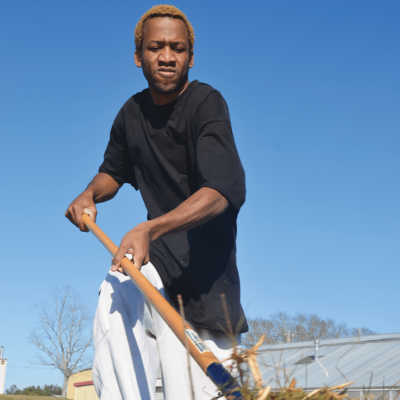2FAS Student Programs
The Future is Farmers
The American agriculture industry and food-related businesses are the foundation of our lives and our nation’s economy. There is a growing need in the agricultural workforce to feed, clothe, and house over 9 million people by the year 2050. Furthermore, as the “baby boomer” generation of Farmers, Agricultural Extension personnel, and scholars/activists continues to age into retirement will also include the disappearance of their industry expertise. Consequently, there is a demand in the agricultural workforce for qualified candidates and college graduates to fill the number of job vacancies in the federal government, in particular USDA agencies (ex., NRCS, RD, FSA, USFS). Unfortunately, these growing career opportunities are not met with prepared students from minority groups, particularly those with backgrounds in Science, Technology, Engineering, Agriculture, and Mathematics (STEAM). Moreover, the issue is that there has not been a sustainable experiential learning and mentoring in agricultural education for the development of a professional and diverse workforce. The demand is greater than ever.
In the past 10 years the Future Farmers and Agricultural Specialist (2FAS) program has engaged over 200 high school and college students in three (3) apprenticeship, training, and fellowship programs (e.g., Summer Agents, Carver Integrative Sustainability Center Summer Experience, and the Tuskegee University Cooperative Extension Intern Program). The first two apprenticeship/training programs were 8-week site specific programs, and the last program was a yearlong apprenticeship throughout the Tuskegee University service areas. Students worked alongside local farmers, extension agent professionals, agribusiness entrepreneurs, rural policy experts, natural resource professionals, and with the local community Farmer’s market while gaining knowledge on small-scale farming techniques, sales, Good Agricultural Practices (GAP), Good Handling Practices (GHP), soil and water conservation, and marketing. There were also weekly workshops/seminars and mandatory certification courses in Geographic Information Systems, Food Safety, and Sustainable Food Systems. The most recent program, CHFP, looks to diversify the experiences of graduate students at HBCUs working on research connected to food systems. They are connected with food system mentors from all over the country and engaged in professional development specified to food system development.
As a result of addressing the problem, high school students, undergraduates, and graduate-level interns/fellows all reported an increased awareness of the many types of Agriculture careers and food-related businesses. 100 percent of the participating students gained knowledge of the operating components of a food system and how these components can be influenced. 95% increased their knowledge of the use and application of Geographic Information Systems. 82% of the participants indicated an increased likelihood to pursue a career path in agriculture and related sciences. The program boasts that 99% of its alumni work in the food and agriculture sector, with three full-time farmers/entrepreneurs under the age of 40, leaders in the non-profit and community-based organization space, and multiple educators, agents, and researchers.




